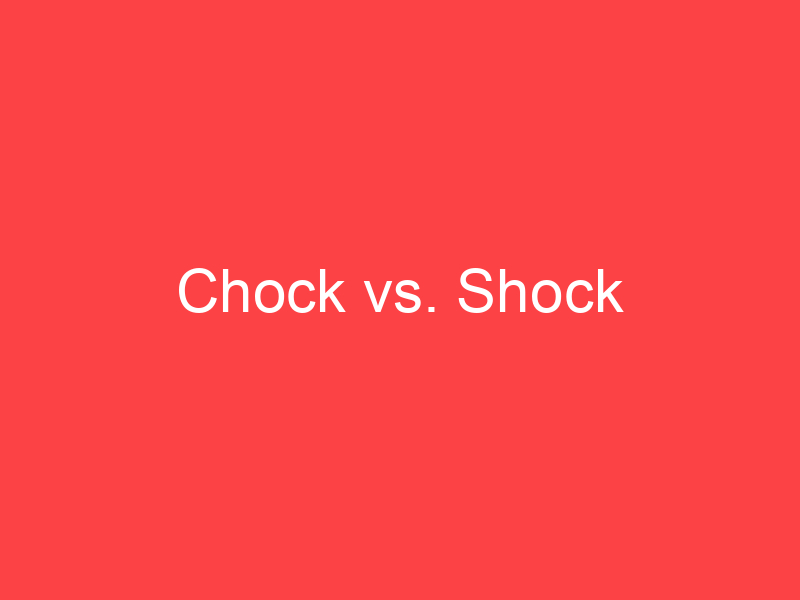-
Chock (noun)
Any object used as a wedge or filler, especially when placed behind a wheel to prevent it from rolling.
-
Chock (noun)
Any fitting or fixture used to restrict movement, especially movement of a line; traditionally was a fixture near a bulwark with two horns pointing towards each other, with a gap between where the line can be inserted.
-
Chock (noun)
An encounter.
-
Chock (verb)
To stop or fasten, as with a wedge, or block; to scotch.
-
Chock (verb)
To fill up, as a cavity.
-
Chock (verb)
To insert a line in a chock.
-
Chock (verb)
To encounter.
-
Chock (verb)
To make a dull sound.
-
Chock (adverb)
Entirely; quite.
-
Shock (noun)
Sudden, heavy impact.
“The train hit the buffers with a great shock.”
-
Shock (noun)
Something so surprising that it is stunning.
-
Shock (noun)
Electric shock, a sudden burst of electric energy, hitting an animate animal such as a human.
-
Shock (noun)
Circulatory shock, a life-threatening medical emergency characterized by the inability of the circulatory system to supply enough oxygen to meet tissue requirements.
-
Shock (noun)
A discontinuity arising in the solution of a partial differential equation.
-
Shock (noun)
An arrangement of sheaves for drying, a stook.
-
Shock (noun)
A lot consisting of sixty pieces; a term applied in some Baltic ports to loose goods.
-
Shock (noun)
A tuft or bunch of something (e.g. hair, grass)
“a head covered with a shock of sandy hair”
-
Shock (noun)
A small dog with long shaggy hair, especially a poodle or spitz; a shaggy lapdog.
-
Shock (verb)
To cause to be emotionally shocked.
“The disaster shocked the world.”
-
Shock (verb)
To give an electric shock.
-
Shock (verb)
To meet with a shock; to meet in violent encounter.
-
Shock (verb)
To collect, or make up, into a shock or shocks; to stook.
“to shock rye”

